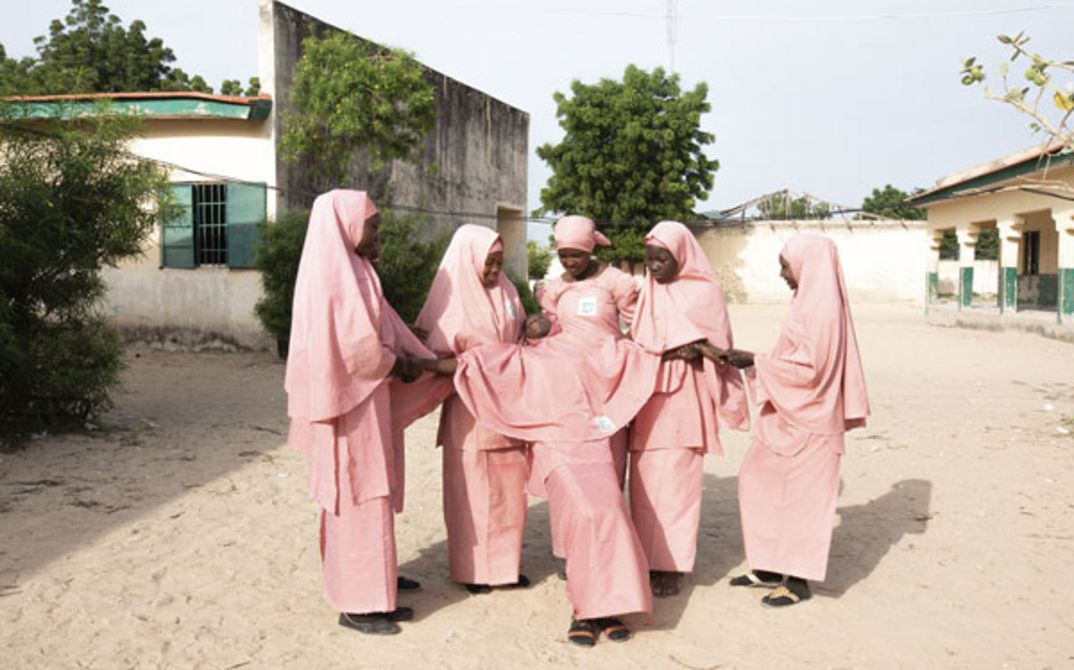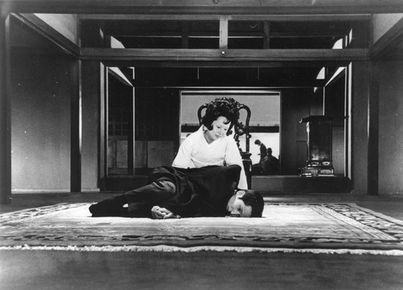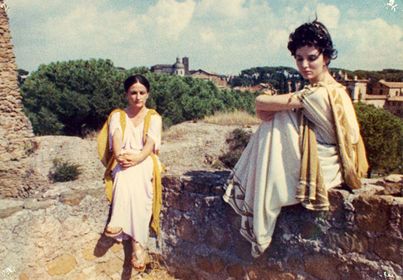
From Avant-garde to Antikino
On the Reverberations of the First Berlinale Forum
by Anselm Franke
by Anselm Franke
Films have a peculiar life of their own. On the one hand, they are completely and utterly context-specific and bound to their present; on the other hand, they become part of a cultural archive that effortlessly folds past into present again and again and thwarts all notions of the difference between history and present. Arsenal – Institute for Film and Video Art’s film archive, which comprises a large portion of the politically engaged and formally radical programmes of the Berlinale Forum (since 1971, and, since 2004, those of Forum Expanded too), makes this all too clear.
And not just due to the exemplary, multidisciplinary research work being carried out on the vision of a “living archive” at Arsenal, which has been setting an international benchmark for years.
But the living archive faces an afflicted present. For we are indeed living in afflicted times – of that there can be little doubt: the brutalisations of capitalism and the resulting global lurch to the right are simply too ghastly. Or should we speak less of affliction than of persistent, systemic structures, of privilege and material exploitation, the (alleged) historical overcoming of which now turns out to have been a comparatively short-lived liberal flash in the pan? That, in reality, nothing has been truly overcome – and that invoking history does not guarantee how it will unfold next – is one of the insights of the present moment, one even discussed in the arts pages of some newspaper or another. But what consequences do we draw from this for our understanding of culture?
Film derives its mass appeal and contemporaneity due to the fact that it generates its material from a non-artistic reality, wrote Alain Badiou in his 1999 essay L’Art du cinema. In film, this reality is condensed and purified by necessity; it becomes culture. But films can also break out of this separation and an idealised, yet inconsequential public realm and connect anew with non-artistic realities. This creates tectonic shifts in one’s individual standpoint vis-à-vis the historical backdrop. As in geology, images of history form part of the sediments of a landscape of memory, a landscape in which the different structural layers clash, sink down, rise up, break out and cause seismic tremors. And thus structural continuities and fault lines that were considered overcome and belonging to the past become present once again. But there is absolutely nothing “natural” about this geology, nothing that is the plaything of anonymous forces. Rather, it becomes clear that cultural memory itself is unavoidably linked to historical struggles and lines of conflict. The afflictions of the present thus also result in film memory connecting with the non-artistic reality once more. These tectonic shifts reveal the continuities of structural violence as well as resistance afresh, and the ideological frameworks of our perception of history and reality itself are called into question.
So what to call these frameworks in a present that leaves us speechless? How does film memory speak to those persisting structures of violence, whose continuities break through once more with increasing brutality, and in the face of which words and images are felt to be powerless or only capable of producing short-term affect, thus leading to the re-evaluation of the images and words of the past? The titular theme of the 2015 Forum Expanded came from Jean-Luc Godard, who once remarked, in reference to the aspirations of the Nouvelle Vague, that what his generation had perceived as an opening was really the sound of a door falling back into its lock forever. This statement was definitely received differently at the time he made it than today: as the disillusioned stance of a politicised filmmaker whose hopes regarding the consciousness of images and politics had been buried by the triumph of liberalism and capitalist mass culture. However, if the rug is being pulled out from under us in the cultural sector today because the fragile consensus around the liberal promise of a progressive global capitalism capable of reform is falling to pieces – and a cursory glance at global film production in recent years is enough to underpin this feeling – then Godard’s grim observation can perhaps be read differently once again.
It goes without saying that the reverberations of those closing doors can still be felt. But when one speaks of the affliction of the present, it becomes clear that the spectres of political cinema, those shadows of the past, are unconcerned by closed doors. Instead, they fend off their derealisation, their neutralisation in the ghetto of culture and its well-cultivated liberal illusions. They call on us to let go of the mourning of lost “utopias”, the derealisation of alternative and collective lives, as well as the privilege of savouring social struggles as a kind of culture. For this mourning has in recent decades pushed politicised cinema into the realm of “arthouse” cinema or into the mystified avant-garde with steely logic, the latter of which has long since hardened into a genre and ekes out a meagre and elitist existence in the ruins of mass culture, alienated from the realities of the market. It is precisely this refusal of the libidinous economy of the identification of mass cinema that museums have been ennobling for some time, as (avant-garde) art singled out from mass culture that evades precisely that (materialistic) obligation to a non-artistic reality. Escaping both the stranglehold of advertising logic and the ennoblement of aesthetic appreciation is what increasingly unites makers of engaged films today, in addition to a fundamental solidarity. The artistically radical cinema refuses to mourn lost utopias because it can no longer afford them.
Anyone looking back on the history of the Forum and Forum Expanded today will find an updateable film memory for which the door has always been left ajar at the very least. Looking back to the origins of the Forum, which make up a substantial part of the programme in this year of new beginnings, is significant in many respects. Just as returning to the origins of the Forum today is far more than a routine ritual, raising existential and systemic questions that renounce the certainties of the recent past precisely so that existential continuities become possible, the 1971 Forum equally draw upon the dimension of the lines of conflict and anti-fascist struggles of the 1930s, themselves existential by no means just for cinema, in order to locate its own position within the tectonics of the cultural landscape, at the fracture points and conflict lines. The archaeology of the Soviet revolutionary cinema of Vertov and Medvedkin as well as the (self-)criticism of the (anti-)bourgeois cinema of Jean Renoir, Luis Buñuel, or Luchino Visconti provided the framework at a time in which the militant, anti-capitalist and anti-colonial image politics of a Sarah Maldoror, a William Klein or a Med Hondo, or the materialistic mythopoeia of Jean-Marie Straub & Danièle Huillet or Nagisa Oshima were first coalescing into the sort of image that points beyond art and resists its containment and false autonomy.
In the 1980s, Vilém Flusser spoke of how new media technologies would destroy the monopoly and the hierarchies of bourgeois culture and also render the distinction between mass culture and elitist high culture obsolete. The so-called engaged cinema of the Forum’s early period, militant image production with a radical focus on the world, does not haunt the present. Instead, this cinema forms a necessary frame of reference without which the “tectonics” of the present can only be mystified and (mis)understood as capitalist natural history, but not the lines of conflict that none of us are able to escape through mere contemplation.
The theme of last year’s Forum Expanded was Antikino. Surprisingly, as it turned out, Antikino, or “anti-cinema”, is not a historically established term. It does, however, touch upon a kernel of film and social history as reflected in the history of the Forum and Forum Expanded. Engaged cinema and confrontational détournements against the mainstream’s simplification of cinematic and narrative conventions were characteristic of a counter-cinema aiming for social transformation, subverting the fundamental role played by the so-called mainstream in the legitimation and reproduction of social structures. The refusal of fetishistic identifications of capitalist culture and its modes of subjectification, the ruins of the individualised life trained for competition: all of this reflects the connection between the realm of possibility offered by cinema and social form of existence – a connection never really lost, albeit in need of reconstruction.
The end of bourgeois culture prophesied by Flusser is well underway: the digital media are subverting their protocols, hierarchies and mechanisms of purification and exclusion at a rapid pace. The emancipation of the media, however, reveals its own vulnerability and manipulability. The global image culture is dominated by statistically measured and algorithmically distributed streams of affect and has become the medium for a new form of extractivism, a “primitive accumulation” in the realm of subjectivity and of life.
The demise of bourgeois culture also means, however, that the film memory of the Forum and its archive is acquiring a role of perhaps entirely new significance, communicating directly with the structural and existential struggles of the present as the infrastructure of a global consciousness.
Anselm Franke is a curator, author and head of the Department of Visual Arts and Film at the Haus der Kulturen der Welt. He is also the co-founder of Forum Expanded and part of their curatorial team.

